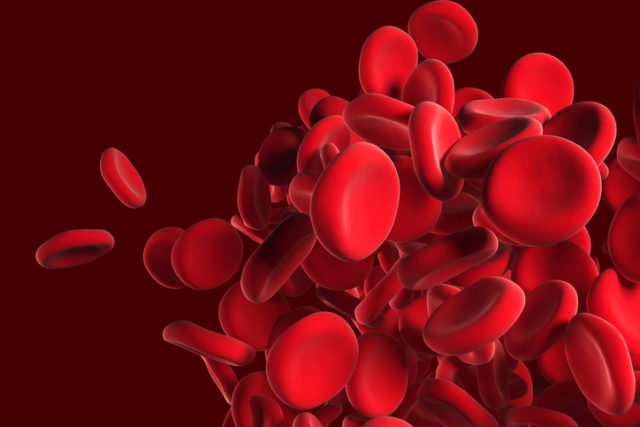
A Servier Pharmaceuticals drug acquired as part of a $1.8 billion deal has won an additional FDA approval as a treatment for a rare type of blood cancer carrying a specific mutation.
The regulatory decision for the France-based drugmaker’s therapy, Tibsovo, covers the treatment of advanced cases of myelodysplastic syndromes characterized by an IDH1 mutation. Along with the drug approval, the FDA also approved an Abbott companion diagnostic that identifies patients eligible for the medication, which the agency said is the first targeted therapy for this type of cancer.
Myelodysplastic syndromes, or MDS, are a group of rare blood cancers in which blood cells produced by the bone marrow don’t develop normally. Eventually, the abnormal and defective blood cells outnumber the healthy ones, leading to a range of complications. The lack of healthy red blood cells sparks anemia. Too few white blood cells make a patient susceptible to infections. The lack of platelets can lead to bleeding. According to the FDA, between 60,000 and 170,000 people in the U.S. have MDS; each year, there are an estimated 87,000 new MDS cases worldwide. About 3.6 percent of MDS patients have an IDH1 mutation, the FDA said.
Treatment of MDS includes transfusions of blood cells from healthy donors as well as medications that stimulate the bone marrow to produce healthy blood cells or stimulate the maturation of immature blood cells. Some drugs are used to treat MDS complications. In August, Bristol Myers Squibb drug Reblozyl won an FDA nod as a first-line treatment of the anemia that develops from MDS.
Servier’s Tibsovo is a small molecule designed to target and block mutated versions of IDH1, an enzyme that in its normal form plays a role in cellular metabolism. The drug was first approved in 2018 as a treatment for advanced cases of acute myeloid leukemia (AML) characterized by an IDH1 mutation. The drug has since won approvals that move it into earlier lines of AML treatment. Tibsovo is also approved for treating cholangiocarcinoma characterized by an IDH1 mutation.
Servier’s FDA submission for Tibsovo in MDS was based on an open-label, single-arm study enrolling 18 adult patients with MDS carrying an IDH1 mutation. Those cases had relapsed or did not respond to earlier treatment. The once-daily pill was given in 28-day cycles until the disease progressed or the drug’s toxic effects became unacceptable. The main goal was to measure the rate of complete remission or partial remission, the duration remission, and the rate of conversion to transfusion independence.
Clinical trial results showed 39% of patients achieved complete remission and the duration of this remission ranged from 1.9 to 80.8 months. Of the nine MDS patients who required transfusions of blood or platelets at the start of the study, six of them no longer required transfusions after treatment with Tibsovo.
The most common side effects reported in the study include diarrhea, constipation, nausea, joint pain, and fatigue. The FDA cautions that the drug may also cause a condition that leads to abnormal heart rhythms. Tibsovo’s label carries a black box warning that flags the risk of differentiation syndrome, an adverse reaction that is a known complication of blood cancer drugs.
“As the first and only targeted therapy available for patients with IDH1-mutated relapsed or refractory myelodysplastic syndromes, today’s FDA approval for Tibsovo reinforces our commitment to deliver significant advances in areas of high unmet need and bring the right treatment, to the right patient, at the right time,” Servier Pharmaceuticals Head of Commercial Arjun Prasad said in a prepared statement.
Tibsovo was discovered and developed by Agios Pharmaceuticals. In 2021, Servier added on to its cancer operations by paying $1.8 billion to acquire Agios’s cancer drug business. Agios was still owed royalties on sales of Tibsovo. But last year, the biotech monetized its Tibsovo royalty stream by selling those rights to investment firm Sagard Healthcare Partners. Agios has shifted its focus to the development of rare disease drugs. It’s currently focused on commercialization of Pyrukynd, a drug for a rare form of anemia that won its FDA approval in early 2022.
Image: virusowy, Getty Images








